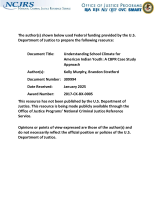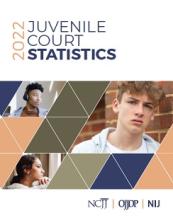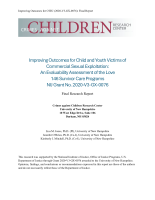Understanding School Climate for American Indian Youth: A CBPR Case Study Approach
Date Published
2023
Publication Type
Research (Applied/Empirical)
Agencies
NIJ-Sponsored





